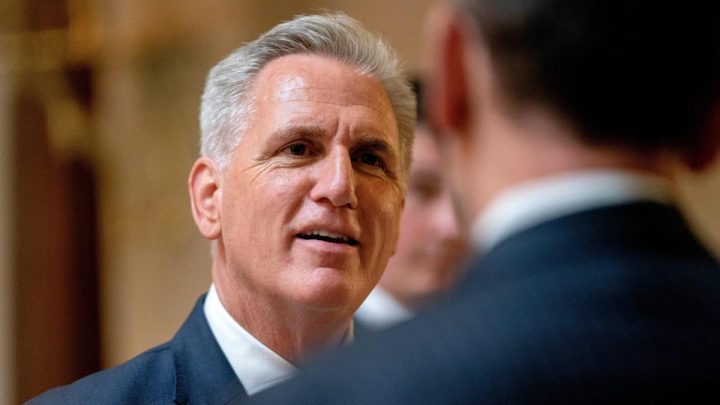
Why is it so hard for Congress to deal with the national debt?
Why is it so hard for Congress to deal with the national debt?

There’s now more details on House Speaker Kevin McCarthy’s plan to cut a deal with the Biden administration on the federal debt limit.
In exchange for a $1.5 trillion increase in the government’s borrowing authority, the Limit, Save, Grow Act of 2023, as it’s called, would limit discretionary spending, roll back some tax credits, end student loan forgiveness and repeal additional IRS funding, among other things.
But, as expected, President Joe Biden said he has no plans to negotiate the creditworthiness of the United States, and Democrats want a “clean” bill — one without conditions — to raise the debt limit.
It can be hard to see the economic arguments behind all the political back and forth. But here’s the reality: To actually address the nation’s accumulated debt and yearly deficit would require really big and politically painful changes.
There’s a whole school of thought arguing that having mounds of national debt isn’t actually that big a problem. But it’s fair to say much of Congress is not in that camp. Thus, the government is again fighting over the debt limit.
And for all the complexities of the U.S. economy, if Congress really wants to address this, the broad solutions are fairly simple.
“On one hand, you can reduce certain types of spending that hopefully will not have these other negative consequences, like increasing poverty, increasing inequality, etc., etc.,” said Mariely Lopez-Santana, who teaches government and politics at George Mason University. “But on the other hand, you just need more money, right? And how do you get more money? By taxing certain types of people. So in that way, the solution might seem very basic.”
But of course, the political pain comes when you have to decide who loses benefits and who pays more in taxes.
“You have politicians who are all incentivized to go home to their constituents and say, ‘Look at all of the goodies I brought you out of the federal coffers,'” said EJ Antoni, a research fellow at the Heritage Foundation.
Promoting more economic growth can ease deficits, but to make a meaningful dent in the debt, Antoni said both parties need to make hard choices about popular programs like defense spending.
“But on top of that, we also need to have some very serious conversations about entitlements,” he added. This means Social Security, Medicare — the things politicians and their constituents don’t like messing with.
There’s a lot happening in the world. Through it all, Marketplace is here for you.
You rely on Marketplace to break down the world’s events and tell you how it affects you in a fact-based, approachable way. We rely on your financial support to keep making that possible.
Your donation today powers the independent journalism that you rely on. For just $5/month, you can help sustain Marketplace so we can keep reporting on the things that matter to you.

















